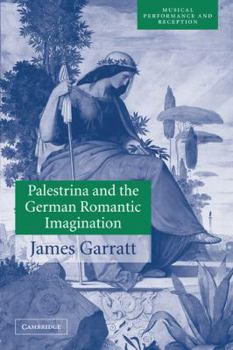Palestrina and the German Romantic Imagination: Interpreting Historicism in Nineteenth-Century Music
(Part of the Musical Performance and Reception Series)
Select Format
Select Condition 
Book Overview
Focusing on the reception of Palestrina, this bold interdisciplinary study explains how and why the works of a sixteenth-century composer came to be viewed as a paradigm for modern church music. It explores the diverse ways in which later composers responded to his works and style, and expounds a provocative model for interpreting compositional historicism. In addition to presenting insights into the works of Bruckner, Mendelssohn and Liszt, the book offers fresh perspectives on the institutional, aesthetic and ideological frameworks sustaining the cultivation of choral music in this period. This publication provides an overview and analysis of the relation between the Palestrina revival and nineteenth-century composition and it demonstrates that the Palestrina revival was just as significant for nineteenth-century culture as parallel movements in the other arts, such as the Gothic revival.
Format:Paperback
Language:English
ISBN:052100196X
ISBN13:9780521001960
Release Date:June 2010
Publisher:Cambridge University Press
Length:334 Pages
Weight:1.08 lbs.
Dimensions:0.8" x 6.0" x 9.0"
Customer Reviews
0 rating





